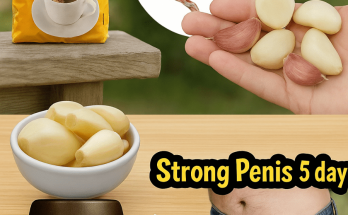When it comes to supporting cognitive development—especially in children—what’s on the snack plate can make a big difference.
While no single food can promise brainpower, certain nutrients are linked to concentration, memory, and mental alertness.
Smart snacking habits can play a role in helping children thrive in learning environments, and adults can benefit too.
Here’s how to snack smarter to support brain health at every stage of life.
1. Choose Whole Foods Over Processed Picks
Whole, minimally processed foods provide a steady release of energy and key nutrients. Snacks made from fruits, vegetables, nuts, seeds, and whole grains help maintain consistent blood sugar levels—important for staying focused during study or work time. Smart swaps:
- Instead of potato chips, offer air-popped popcorn or roasted chickpeas.
- Trade candy bars for sliced apples with almond butter.
2. Focus on Omega-3s
Omega-3 fatty acids are important for brain cell function. While most people associate them with fish, there are plenty of plant-based options too. Omega-3-rich snacks:
- Flaxseed mixed into smoothies or yogurt
- Chia seed pudding
- Walnuts or walnut butter on whole-grain toast
3. Add Color with Antioxidant-Rich Foods
Berries, carrots, and leafy greens are high in antioxidants, which help protect brain cells from oxidative stress. They’re also fun, flavorful, and appealing to picky eaters. Colorful snack ideas:
- Frozen blueberries as a refreshing treat
- Bell pepper strips with hummus
- Fruit kabobs with a yogurt dip
4. Don’t Forget Complex Carbohydrates
Carbohydrates are the brain’s preferred energy source—but not all carbs are created equal. Complex carbohydrates digest slowly, providing long-lasting fuel without the energy crash that comes from sugary treats. Better carb choices:
- Whole-grain crackers with cheese or avocado
- Oatmeal cups with cinnamon and banana
- Homemade trail mix with whole-grain cereal
5. Hydration Is Part of Smart Snacking
Even mild dehydration can affect concentration and memory. Pair snacks with water or hydrating foods to keep the brain sharp. Hydrating snack pairings:
- Watermelon cubes
- Cucumber slices
- A reusable bottle of water infused with citrus
6. Keep It Balanced
Snacks that include a mix of healthy fats, protein, and fiber tend to be more satisfying and help avoid spikes in blood sugar. This balance supports better energy and attention levels throughout the day. Balanced snack ideas:
- A small smoothie with Greek yogurt, berries, and oats
- Hard-boiled eggs with cherry tomatoes
- Nut butter on rice cakes with banana slices
Final Thoughts
Snacking smarter doesn’t have to be complicated. By focusing on nutrient-dense foods and variety, families can support better cognitive development and healthier eating habits overall. Whether packing lunchboxes or preparing an afternoon snack at home, the goal is to nourish the body—and the brain—with every bite.


